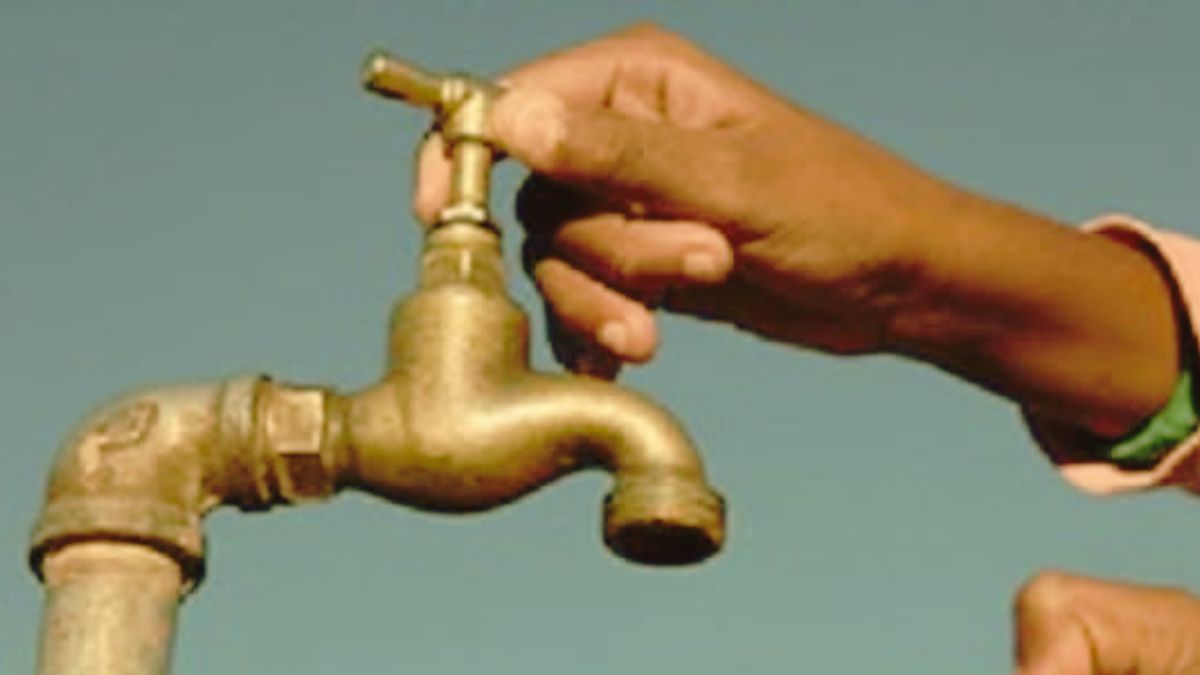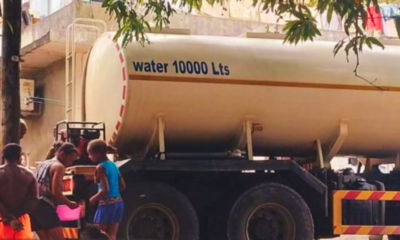News
Water Scarcity and Pollution Threaten Mauritius’ Future

A recent report by the Ministry of Public Services and Energy has highlighted the alarming state of the water situation in Mauritius. Despite significant investments in the sector, the country is still grappling with a major water distribution problem.
According to the report, numerous regions are facing water shortages due to over-extraction, climate change, and poor water management.
The Ministry’s analysis revealed that the country’s water resources are not being distributed evenly, leading to regional disparities and risks.
The root cause of this crisis is attributed to several factors. Firstly, the rapid population growth is intensifying water demand and putting pressure on existing resources.
Secondly, the aging infrastructure is exacerbating the problem. “In some regions, the hydraulic infrastructure is outdated and maintenance or replacement are required. This leads to water losses and quality issues,” the Ministry’s report stated.
Despite substantial investments and election promises to ensure a 24/7 water supply to the nation, the results have not been forthcoming.
The need for additional measures to ensure a sustainable and equitable management of water resources across the country is evident.
Another pressing concern is the risk of contamination. The Ministry’s report highlighted the threat posed by pollutants, industrial spills, and agricultural runoff to the quality of water and public health.
The expansion of industrialization and urbanization is likely to worsen the pollution problem, posing a significant threat to human health and ecosystems.
Industrial and urban activities emit pollutants, including chemical substances, industrial waste, and untreated wastewater, which compromise the quality of freshwater sources.
Adi Teelok, a member of Platform Moris Lanvironman and environmental activist, explained that the water sector is facing numerous challenges.
“The sector is struggling to cope with the increasing demand for water, while also dealing with aging infrastructure and poor management practices,” she said.
The Mauritian government has acknowledged the severity of the situation and has pledged to take steps to address it.
However, experts have argued that more needs to be done to ensure a sustainable and equitable management of water resources across the country.
As the island faces an unprecedented crisis, concerns are mounting about the impact of pollution and water scarcity on its future.
According to environmental experts, the rapid industrialization, agriculture, and urbanization of the island are posing significant risks to the country’s water supply.
“The pollution of certain sources of supply is a major risk,” said a prominent environmental activist. “But there are other threats to supply as well.
Climate change and luxury real estate development are also major concerns.”
One of the most pressing issues is the threat of droughts caused by climate change.
Mauritius is already considered a country with a high level of water stress, and rising sea levels could lead to the salinization of underground water sources.
The activist also pointed out that the pressure from luxury real estate development, particularly in the context of “Smart City” and “Property Development” schemes, is adding to the strain on the country’s water resources.
“These projects are massive consumers of water, relying on the network of the CWA (Coca-Cola Water Action Partnership), which is struggling to provide adequate supplies to existing residents in many areas of the island,” she said.
Sunil Dowarkassing, a former strategist for Greenpeace International, echoed these concerns.
He highlighted the dangers of pollution and contamination, citing the example of coal ash residue produced by energy production, which contains toxic substances like arsenic, lead, and mercury.
“This residue can enter into contact with groundwater,” he warned. “The destruction of water catchment areas through deforestation is another major threat.”
Despite these concerns, the Ministry is remaining optimistic about the potential of the water sector, citing opportunities for conservation and development initiatives.
The Ministry is convinced that there are possibilities for promoting water conservation and efficient use of resources at both individual and industrial levels.
Investments in technologies such as smart water management systems and water recycling can also help improve resource utilization.
However, experts warn that without immediate action to address the root causes of pollution and water scarcity, Mauritius risks facing severe consequences for its future.
As the island nation is grappling with challenges, it is clear that urgent action is needed to protect its water resources and ensure a sustainable future for its people.
Source: Defi Media





